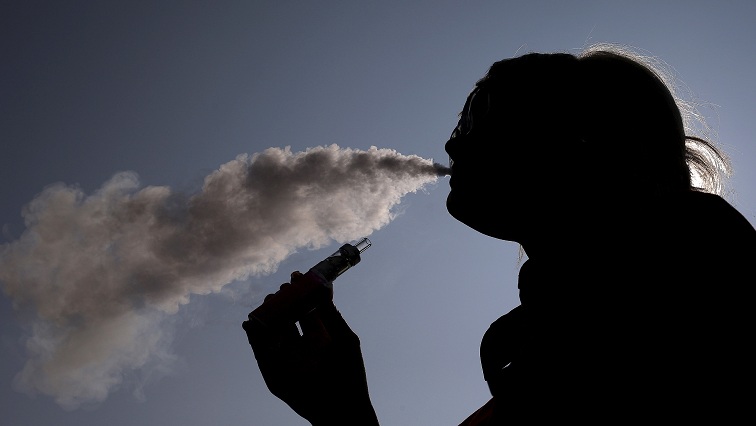Tobacco is a leading cause of disease. It is estimated that it kills half of its consumers. Over a million additional deaths result from exposure to sesecondhand smoke. Countries around the world are moving towards stricter regulation of tobacco products in compliance with their obligation to the World Health Organisation’s (WHO) Framework Convention on Tobacco Control. In 2018 South Africa published a tobacco control bill that sought to better regulate the sale of cigarettes and other tobacco products. It’s been revised as the Tobacco Products and Electronic Delivery Systems Control Bill 2021 and has been approved for submission to parliament. Ina Skosana speaks to Catherine Egbe, a lead researcher on South Africa’s Global Adult Smoking Survey, about the latest developments.
Why has it taken so long to bring the bill before parliament?
The bill was first released for public comments in 2018. After reviewing all the comments, the Department of Health had to do more consultations and update the 2018 version.
Under normal circumstances the process would not take this long. Introducing a law that is focused on protecting people’s health and impacts on the big industries that make money off the products, will always be a challenge, no matter how harmful the products are.
Bills that have a wider impact on society usually take longer to pass because the consultation process takes time, but a delay of four years is not ideal.
We are happy that the bill is back on track.
What are the major changes to the 2018 version of the bill?
The first improvement is that it takes care of novel products – these now go beyond just e-cigarettes to include oral nicotine pouches, and other novel products related to tobacco or nicotine. It also includes future innovations that the industry may come up with.
The tobacco control landscape is very dynamic in terms of product types. One of the key problems we’re having today in South Africa is that the existing law doesn’t regulate electronic cigarettes or other novel products.
So you need a law that takes into account that there could be changes even tomorrow. The current bill, therefore, takes care of future innovations so that such products can fall within the tobacco regulatory framework in South Africa.
What are the chances of this bill being passed?
The administrative and political leadership of the Department of Health is committed to, and passionate about protecting South Africans from tobacco related harms. But it’s not in their hands anymore. They’ve done their part. It’s now left to the members of parliament and the public to make this bill become law. This is where citizens’ action will make impact. They must put pressure on parliament to pass this bill. The health of the nation should take precedence over profit from tobacco.
Why is it important to update restrictions on tobacco use?
South Africa introduced the very first Tobacco Control Act in the 1990s. That law has been updated three times – in 1999, 2007, 2008.
The initial law came into place way before the WHO treaty and before many of these novel products were available. As a signatory to the WHO tobacco control framework, South Africa must make its laws align with the WHO treaty.
In the 1990s the country was a regional leader in tobacco control. It had some of the most stringent tobacco control laws. But the tobacco industry has since come up with new products and ways around the restrictions. South Africa has now fallen behind the rest of the world. As a result, South Africa has regressed and smoking prevalence has steadily increased over the past couple of years.
When the country first introduced tobacco control legislation, it had a smoking prevalence of over 30%. This subsequently fell to as low as 16% in 2010. But is has began to increase.
We’ve been monitoring the trends of tobacco use. One of the surveys I have been using is the South African Social Attitudes Survey.
The global adult tobacco survey, which we conducted last year, shows that 29.4% of South Africans use various tobacco products. And 25.8% smoke tobacco. This is proof that the current law is obsolete. It’s not doing what it’s supposed to do – which is to drive down the tobacco use prevalence.
What are the main drivers of increase in smoking prevalence?
The industry is using many tactics to get young people to start smoking. In the global adult tobacco survey, we found that the average age of initiation of smoking in South Africa was 17.6 years. About 74% of current smokers started when they were teenagers. So, what does the industry do? It employs what I call the “catch them young” approach. It tries to target these young people to get them hooked on nicotine.
Nicotine is one of the most addictive drugs. Once hooked, the smoker keeps looking for the product. That’s why the industry targets young people by using celebrities on social media, and new products that contain exotic flavours. Exotic flavours appeal more to children than adults.
Then electronic cigarettes came on board. Nicotine is one of the common components between electronic cigarettes and traditional tobacco products.
Studies from around the world show that some people who may not have smoked, ended up smoking traditional products after starting with electronic cigarettes.
What are the risks of not regulating tobacco products?
Any delay in controlling tobacco will cause a lot of deaths from tobacco related diseases. Tobacco is one of the leading causes of noncommunicable diseases. These conditions are the leading cause of death in South Africa and in many parts of the world. If the legislation is delayed further, more young people are at risk of getting hooked on nicotine, with dire consequences.
In 2016, the healthcare cost of tobacco use was R14.48 billion in South Africa. The tobacco industry only contributed about R12 billion in taxes. So at the end of the day, who is benefiting more from tobacco?
Catherine O. Egbe, PhD, Specialist Scientist, Alcohol Tobacco and Other Drug Research Unit, South African Medical Research Council
This article is republished from The Conversation under a Creative Commons license. Read the original article.




